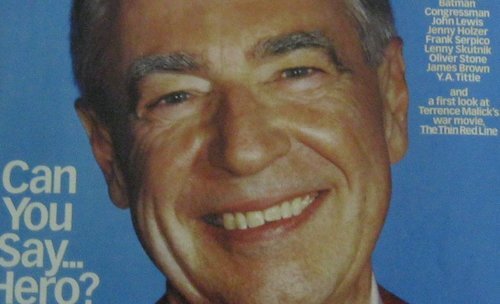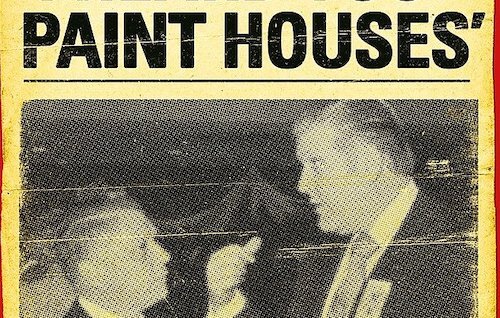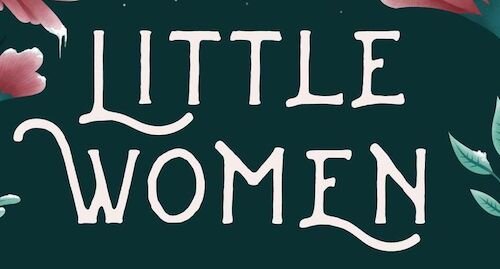Best Adapted Screenplay: Ranking Every Oscar Nominee
We are now tackling the two screenwriting categories: Best Adapted and Best Original Screenplay. Looking at Adapted first, there are a few things to consider. Sure, the end product is important, but the road to get there is also a story in and of itself. Perhaps more so this year than usually, the nominated screenplays had a lot of liberties taken to make these films truly their own (at least three of the nominees are deviations to some extent). That’s exciting for us. It makes our analysis this time around more interesting, but also more challenging. How can we decide which artistic decisions are better than others, especially when these films had different goals in mind (hell, one film is meant to be darker than the source material, and the other aimed to be lighter). Well, as usual, we tried our best. We’re inspecting the actual screenplays being good screenplays, but we’re also judging how these adaptations fared out compared to their source materials.
Here are your nominees for Best Adapted Screenplay, ranked from worst to best.
Biggest Snub: A Beautiful Day in the Neighborhood
The fact that Marielle Heller’s latest only got one nomination is quite sad, especially since the screenplay’s spin on the original Esquire article is quite fascinating. Tom Junod’s acclaimed article on Fred Rogers had enough content to churn a story out of his interviews with the iconic television educator. However, the film’s aim to turn this story into an actual episode of Mister Rogers’ Neighborhood is brilliant. It paces the film in a way that brought nostalgia to older audiences, and context to a new generation. It was just fantastic. This is a major snub for sure.
5. The Two Popes: Anthony McCarten
The back-and-forth dialogue between Pope Benedict and soon-to-be-Pope Francis is engaging and stimulating, particularly the philosophies that both men of faith have had personal battles with. This was adapted by Anthony McCarten from his own play The Pope. This is clearly the case. The Two Popes reads like a cinematic play, with its minimalist structure. Nothing wrong with that, but this is as neutral as an adaptation can be. Still, the conversations are neat.
Our review of The Two Popes
4. Jojo Rabbit: Taika Waititi
The original novel (Caging Skies by Christine Leunens) serves as the most basic core of Jojo Rabbit: Jojo discovers his mother is hiding a Jewish girl that conflicts against his views as a Nazi youth member. Taika Waititi — the daredevil that he is — decided to expand on this tale and turn the film into a full on wacky satire. He tossed in an imaginary-friend version of Adolf Hitler, plus a lot of over-the-top jokes (most of which land very well). As a re-imagination, Jojo Rabbit is as bold as it is bonkers. You can’t say it didn’t try, even if it isn’t your cup of tea.
Our review of Jojo Rabbit
3. Joker: Todd Phillips & Scott Silver
There isn’t a single source for Joker, but rather any iteration of the character that has ever existed (although you can pinpoint parrallels between the film and works like The Killing Joke). Todd Phillips and Scott Silver went to great lengths to make Arthur Fleck (and his eventual Joker persona) feel like a possible real case. Plus, they tossed in as much social context as possible. We were a bit heavy on our initial review of the film and the wonkiness that arouse by the film trying to balance political commentary and a comic book origin story; this made some of the statements conflicted. However, we’ve eased up on this adaptation a little bit. It’s certainly a unique adaptation.
Our review of Joker
2. The Irishman: Steven Zaillian
Come on. It’s Steven Zaillian. While his adaptation of “I Heard You Paint Houses” is fairly true to its source (compared to some of the nominees here), Zaillian’s take turns the nonfictional confessional (read that any way you wish) into a blistering piece of the Martin Scorsese pie. Electric one-liners here. Gut punching insults there. Even though this is a typical Scorsese film with improvisation tossed in, you can tell that a good portion of the success here comes from Zaillian’s knowledge of how to craft a script. Take into consideration the length of the film, and how the plot threads are dealt with in a patient, non-typical way, and you can tell The Irishman is a special story.
Our review of The Irishman
1. Little Women: Greta Gerwig
Wow. Just wow. This should have been the last entry. Little Women has been done to death. However, Greta Gerwig has a knack for extracting purity out of any tale, evidently. By taking the two “halves” of this classic tale, and smushing them together, Gerwig has found new substance in a work we all thought we knew inside and out by now. Little Women becomes a series of parallels between the past and present of the March family, so so many iconic moments carry new information now. How does Amy compare in this adult scene, compared to this childhood scene, for instance? Then, you have Gerwig’s fresh take on innocent, charming humour, which adds extra warmth to a film that already had the best, kindest intentions. Greta Gerwig’s Little Women is far and away the winner of this category for us.
Our review of Little Women
Who we want to win: Greta Gerwig. Enough said.
Who we think will win: It looks like Greta Gerwig may pull away with her first Academy Award win, but don’t count Steve Zaillian out completely. This could go to either writer: the sterling newcomer, or the established writing vet.
Tune in tomorrow for our next Academy Award category! We’re reviewing every single nominee.
Andreas Babiolakis has a Masters degree in Film and Photography Preservation and Collections Management from Ryerson University, as well as a Bachelors degree in Cinema Studies from York University. His favourite times of year are the Criterion Collection flash sales and the annual Toronto International Film Festival.








